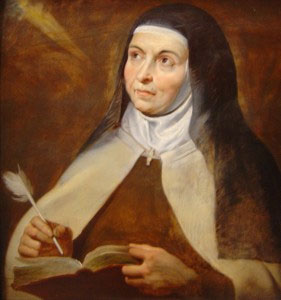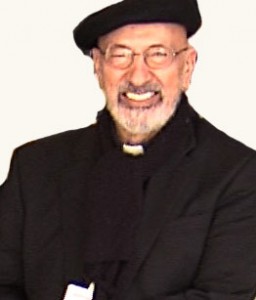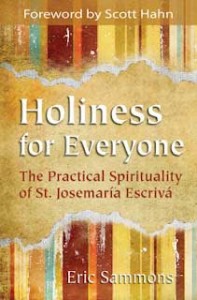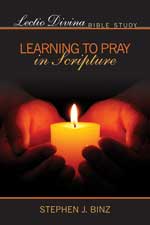“Walk Humbly Before Your God: Â Simple Steps to a Virtuous Life” is an all-time favorite. Â Fr. Andrew Apostoli,
member of the Franciscan Friars of the 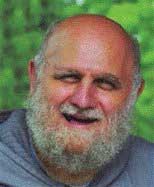 Renewal and a frequent host on the Eternal Word Television Network, has a beautiful way of shining new light on basic truths.  He graciously takes time to teach us on the nature of prayer,  how it develops in our lives and how we can nurture it.  He speaks on Jesus and several aspects surrounding His prayer: praise, thanksgiving, intercession, and how it aids in our suffering.  Our traditional vocal prayers, as well as the depths of contemplation are also discussed including how do we deal with distractions, .  Fr. Apostoli, a humble holy priest, is a master spiritual catechist!  Contained in this 50 minute discussion, you’ll find guidance that can last a lifetime.
Renewal and a frequent host on the Eternal Word Television Network, has a beautiful way of shining new light on basic truths.  He graciously takes time to teach us on the nature of prayer,  how it develops in our lives and how we can nurture it.  He speaks on Jesus and several aspects surrounding His prayer: praise, thanksgiving, intercession, and how it aids in our suffering.  Our traditional vocal prayers, as well as the depths of contemplation are also discussed including how do we deal with distractions, .  Fr. Apostoli, a humble holy priest, is a master spiritual catechist!  Contained in this 50 minute discussion, you’ll find guidance that can last a lifetime.
[powerpress]
You can find Fr. Apostoli’s book here
From the book description:
Christians, if they are to have any impact in today s world, have something of the same code: we fight the good fight, side by side, ready to lay down our lives for one another. Such heroism doesn t come naturally. As Walk Humbly With Your God points out, it is in the day-to-day training, in taking the simple steps to holiness, that heroism becomes second nature.
Fr. Apostoli provides an inspirational guide to conquering our faults, growing in prayer and acquiring the virtues that enable us to walk with God and live for others.
This entry was posted on Monday, March 18th, 2013 at 7:52 am
You can follow any responses to this entry through the RSS 2.0 feed.
“Eucharistic Adoration: Holy Hour Meditations on the Seven Last Words of Christ” is a marvelous book for 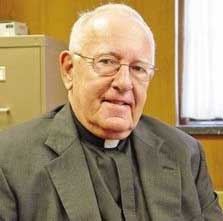 enhancing your experience of one of the Church’s richest devotions.  Msgr. Charles Murphy pours into this work over 50 years of priestly life and pastoral experience in spreading the devotion to the Blessed Sacrament.  He ties together reflections on the seven last words of Jesus with the profiles of seven modern Christians known for their devotion to the Eucharist, including Simone Weil, Edith Stein, Dorothy Day, Blessed John XXIII, Blessed John Paul II, Blessed Teresa of Calcutta, and St. Margaret Mary Alacoque.  In this conversation, we also discuss his book “The Spirituality of Fasting”
enhancing your experience of one of the Church’s richest devotions.  Msgr. Charles Murphy pours into this work over 50 years of priestly life and pastoral experience in spreading the devotion to the Blessed Sacrament.  He ties together reflections on the seven last words of Jesus with the profiles of seven modern Christians known for their devotion to the Eucharist, including Simone Weil, Edith Stein, Dorothy Day, Blessed John XXIII, Blessed John Paul II, Blessed Teresa of Calcutta, and St. Margaret Mary Alacoque.  In this conversation, we also discuss his book “The Spirituality of Fasting”
[powerpress]
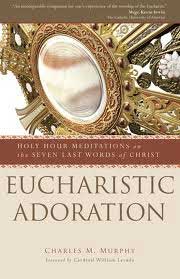 You can find the book here
You can find the book here
Monsignor Charles M. Murphy is currently the director of the permanent diaconate for the Diocese of Portland, Maine. He is the author of a number of scholarly articles and several books, including The Spirituality of Fasting, At Home on the Earth, Wallace Stevens: A Spiritual Poet in a Secular Age, and Belonging to God. Murphy is the former academic dean and rector of the Pontifical North American College in Rome and served as part of the editorial group working in Italy under Cardinal Ratzinger on the third draft of the Catechism of the Catholic Church, which became the fourth and final version.
Murphy currently serves as consultant to the United States Conference of Catholic Bishops committee on catechetics, reviewing materials for conformity with the Catechism. He served as chair of the editorial committee that produced the pastoral letter on environmental issues by the Bishops of the Boston Province and he served as a consultant to the USCCB for their statement on global warming. He has been the pastor of four parishes in Maine and has served his diocese in ecumenical and educational capacities. Murphy holds a doctorate in sacred theology from the Gregorian University, a master’s degree in education from Harvard University, and a bachelor’s degree in classics from the College of the Holy Cross.
Tags: Charles Murphy, eucharistic adoration, margaret mary alacoque, Simone Weil
This entry was posted on Tuesday, February 19th, 2013 at 2:48 pm
You can follow any responses to this entry through the RSS 2.0 feed.
Paula Huston is one of the finest spiritual writers alive today.  Her books speak to the human heart in such a beautiful, gentle way.  She  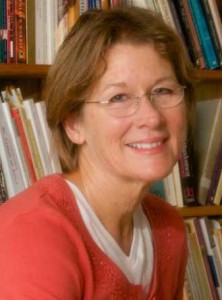 inspires us to climb higher the spiritual mountain, even when the times are treacherous and rocky.  In  “A Season of Mystery: 10 Spiritual Practices for Embracing a Happier Second Half of Life”, she encourages us to slow down, in order to nurture the relationship God is offering us today.  For many of us, it may involve a paradigm shift, but one that is well worth the effort if we choose to enter into it.  Paula breaks open each practice found in her book with moments from her own experience. She then gives us practical helps which can transform our everyday lives.  Those practices include listening, delighting, lightening, settling, confronting, accepting, appreciating, befriending, generating, blessing.  Filled with questions and reflections, this book is perfect for either individual or group study.
inspires us to climb higher the spiritual mountain, even when the times are treacherous and rocky.  In  “A Season of Mystery: 10 Spiritual Practices for Embracing a Happier Second Half of Life”, she encourages us to slow down, in order to nurture the relationship God is offering us today.  For many of us, it may involve a paradigm shift, but one that is well worth the effort if we choose to enter into it.  Paula breaks open each practice found in her book with moments from her own experience. She then gives us practical helps which can transform our everyday lives.  Those practices include listening, delighting, lightening, settling, confronting, accepting, appreciating, befriending, generating, blessing.  Filled with questions and reflections, this book is perfect for either individual or group study.
[powepress]
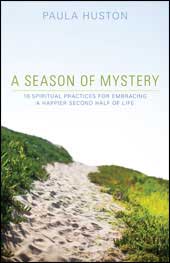 Your can find the book here
Your can find the book here
From the book description:
We live in a culture that tells us there are few things worse than aging, that we should avoid aging at all costs, and that we must shun death. And yet, no matter how much money we spend on health supplements, no matter how many gurus we consult, the fact remains unchanged: We will grow old.
A Season of Mystery is not intended to be a selection of self-improvement secrets; the goal of Huston’s work is to encourage people in the second half of life to become “ordinary mystics†who are no longer bound by the world’s false ideas on aging but instead be freed by God’s grace to embrace the riches that come only with growing older.
Check out  more from Paula - IP#139 Paula Huston – Simplifying Your Soul on Inside the Pages
Tags: Paula Huston
This entry was posted on Friday, February 8th, 2013 at 8:06 am
You can follow any responses to this entry through the RSS 2.0 feed.
What a delight to talk once again with Dr. Thomas Howard.  This time we discuss “Hallowed Be This 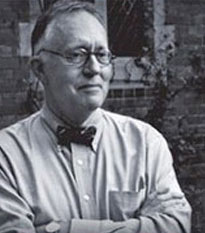 House: Finding Signs of Heaven in Your Home”.  Dr. Howard has such a beautiful gift of recognizing the sacred.  Through this marvelous book, he helps us all to appreciate the many ways in which we too can dive deeper into the “mystery”,  especially in  those ordinary places and things in found in our lives.  This book is a treasure!
House: Finding Signs of Heaven in Your Home”.  Dr. Howard has such a beautiful gift of recognizing the sacred.  Through this marvelous book, he helps us all to appreciate the many ways in which we too can dive deeper into the “mystery”,  especially in  those ordinary places and things in found in our lives.  This book is a treasure!
[powerpress]
 You can find the book here
You can find the book here
Tom Howard, an accomplished writer of great distinction, has the rare gift of being able to express profound truths in whimsical terms. In Hallowed Be This House, he explores with charm and wit the sacramental aspect of our daily lives. I found the book vastly entertaining and, what is more, felt refreshed and the happier of having read it. So, I am sure, will all its readers. —Malcolm Muggeridge
Howard’s vision is the quintessential Catholic, sacramental vision. To read this book is to see with the eyes of Christ. —Peter Kreeft, Handbook of Christian Apologetics
Tags: catholic, catholic podcast, catholic prayer
This entry was posted on Thursday, December 20th, 2012 at 8:00 am
You can follow any responses to this entry through the RSS 2.0 feed.
TERESA OF AVILA: CONTEMPLATIVE AND INDUSTRIOUS
VATICAN CITY, 2 FEB 2011 (vatican.va) –
Dear Brothers and Sisters,
In the course of the Catecheses that I have chosen to dedicate to the Fathers of the Church and to great theologians and women of the Middle Ages I have also had the opportunity to reflect on certain Saints proclaimed Doctors of the Church on account of the eminence of their teaching.
Today I would like to begin a brief series of meetings to complete the presentation on the Doctors of the Church and I am beginning with a Saint who is one of the peaks of Christian spirituality of all time — St Teresa of Avila [also known as St Teresa of Jesus].
St Teresa, whose name was Teresa de Cepeda y Ahumada, was born in Avila, Spain, in 1515. In her autobiography she mentions some details of her childhood: she was born into a large family, her “father and mother, who were devout and feared Godâ€, into a large family. She had three sisters and nine brothers.
While she was still a child and not yet nine years old she had the opportunity to read the lives of several Martyrs which inspired in her such a longing for martyrdom that she briefly ran away from home in order to die a Martyr’s death and to go to Heaven (cf. Vida, [Life], 1, 4); “I want to see Godâ€, the little girl told her parents.
A few years later Teresa was to speak of her childhood reading and to state that she had discovered in it the way of truth which she sums up in two fundamental principles.
On the one hand was the fact that “all things of this world will pass away†while on the other God alone is “for ever, ever, everâ€, a topic that recurs in her best known poem: “Let nothing disturb you, Let nothing frighten you, All things are passing away: God never changes. Patience obtains all things. Whoever has God lacks nothing; God alone sufficesâ€. She was about 12 years old when her mother died and she implored the Virgin Most Holy to be her mother (cf. Vida, I, 7).
If in her adolescence the reading of profane books had led to the distractions of a worldly life, her experience as a pupil of the Augustinian nuns of Santa MarÃa de las Gracias de Avila and her reading of spiritual books, especially the classics of Franciscan spirituality, introduced her to recollection and prayer.
When she was 20 she entered the Carmelite Monastery of the Incarnation, also in Avila. In her religious life she took the name “Teresa of Jesusâ€. Three years later she fell seriously ill, so ill that she remained in a coma for four days, looking as if she were dead (cf. Vida, 5, 9).
In the fight against her own illnesses too the Saint saw the combat against weaknesses and the resistance to God’s call: “I wished to liveâ€, she wrote, “but I saw clearly that I was not living, but rather wrestling with the shadow of death; there was no one to give me life, and I was not able to take it. He who could have given it to me had good reasons for not coming to my aid, seeing that he had brought me back to himself so many times, and I as often had left him†(Vida, 7, 8).
In 1543 she lost the closeness of her relatives; her father died and all her siblings, one after another, emigrated to America. In Lent 1554, when she was 39 years old, Teresa reached the climax of her struggle against her own weaknesses. The fortuitous discovery of the statue of “a Christ most grievously woundedâ€, left a deep mark on her life (cf. Vida, 9).
The Saint, who in that period felt deeply in tune with the St Augustine of the Confessions, thus describes the decisive day of her mystical experience: “and… a feeling of the presence of God would come over me unexpectedly, so that I could in no wise doubt either that he was within me, or that I was wholly absorbed in him†(Vida, 10, 1).
Parallel to her inner development, the Saint began in practice to realize her ideal of the reform of the Carmelite Order: in 1562 she founded the first reformed Carmel in Avila, with the support of the city’s Bishop, Don Alvaro de Mendoza, and shortly afterwards also received the approval of John Baptist Rossi, the Order’s Superior General.
In the years that followed, she continued her foundations of new Carmelite convents, 17 in all. Her meeting with St John of the Cross was fundamental. With him, in 1568, she set up the first convent of Discalced Carmelites in Duruelo, not far from Avila.
In 1580 she obtained from Rome the authorization for her reformed Carmels as a separate, autonomous Province. This was the starting point for the Discalced Carmelite Order.
Indeed, Teresa’s earthly life ended while she was in the middle of her founding activities. She died on the night of 15 October 1582 in Alba de Tormes, after setting up the Carmelite Convent in Burgos, while on her way back to Avila. Her last humble words were: “After all I die as a child of the Churchâ€, and “O my Lord and my Spouse, the hour that I have longed for has come. It is time to meet one anotherâ€.
Teresa spent her entire life for the whole Church although she spent it in Spain. She was beatified by Pope Paul V in 1614 and canonized by Gregory XV in 1622. The Servant of God Paul VI proclaimed her a “Doctor of the Church†in 1970.
Teresa of Jesus had no academic education but always set great store by the teachings of theologians, men of letters and spiritual teachers. As a writer, she always adhered to what she had lived personally through or had seen in the experience of others (cf. Prologue to The Way of Perfection), in other words basing herself on her own first-hand knowledge.
Teresa had the opportunity to build up relations of spiritual friendship with many Saints and with St John of the Cross in particular. At the same time she nourished herself by reading the Fathers of the Church, St Jerome, St Gregory the Great and St Augustine.
Among her most important works we should mention first of all her autobiography, El libro de la vida (the book of life), which she called Libro de las misericordias del Señor [book of the Lord’s mercies].
Written in the Carmelite Convent at Avila in 1565, she describes the biographical and spiritual journey, as she herself says, to submit her soul to the discernment of the “Master of things spiritualâ€, St John of Avila. Her purpose was to highlight the presence and action of the merciful God in her life. For this reason the work often cites her dialogue in prayer with the Lord. It makes fascinating reading because not only does the Saint recount that she is reliving the profound experience of her relationship with God but also demonstrates it.
In 1566, Teresa wrote El Camino de Perfección [The Way of Perfection]. She called itAdvertencias y consejos que da Teresa de Jesús a sus hermanas [recommendations and advice that Teresa of Jesus offers to her sisters]. It was composed for the 12 novices of the Carmel of St Joseph in Avila. Teresa proposes to them an intense programme of contemplative life at the service of the Church, at the root of which are the evangelical virtues and prayer.
Among the most precious passages is her commentary on the Our Father, as a model for prayer. St Teresa’s most famous mystical work is El Castillo interior [The Interior Castle]. She wrote it in 1577 when she was in her prime. It is a reinterpretation of her own spiritual journey and, at the same time, a codification of the possible development of Christian life towards its fullness, holiness, under the action of the Holy Spirit.
Teresa refers to the structure of a castle with seven rooms as an image of human interiority. She simultaneously introduces the symbol of the silk worm reborn as a butterfly, in order to express the passage from the natural to the supernatural.
The Saint draws inspiration from Sacred Scripture, particularly the Song of Songs, for the final symbol of the “Bride and Bridegroom†which enables her to describe, in the seventh room, the four crowning aspects of Christian life: the Trinitarian, the Christological, the anthropological and the ecclesial.
St Teresa devoted the Libro de la fundaciones [book of the foundations], which she wrote between 1573 and 1582, to her activity as Foundress of the reformed Carmels. In this book she speaks of the life of the nascent religious group. This account, like her autobiography, was written above all in order to give prominence to God’s action in the work of founding new monasteries.
It is far from easy to sum up in a few words Teresa’s profound and articulate spirituality. I would like to mention a few essential points. In the first place St Teresa proposes the evangelical virtues as the basis of all Christian and human life and in particular, detachment from possessions, that is, evangelical poverty, and this concerns all of us; love for one another as an essential element of community and social life; humility as love for the truth; determination as a fruit of Christian daring; theological hope, which she describes as the thirst for living water. Then we should not forget the human virtues: affability, truthfulness, modesty, courtesy, cheerfulness, culture.
Secondly, St Teresa proposes a profound harmony with the great biblical figures and eager listening to the word of God. She feels above all closely in tune with the Bride in the Song of Songs and with the Apostle Paul, as well as with Christ in the Passion and with Jesus in the Eucharist. The Saint then stresses how essential prayer is. Praying, she says, “means being on terms of friendship with God frequently conversing in secret with him who, we know, loves us†(Vida 8, 5). St Teresa’s idea coincides with Thomas Aquinas’ definition of theological charity as “amicitia quaedam hominis ad Deumâ€, a type of human friendship with God, who offered humanity his friendship first; it is from God that the initiative comes (cf. Summa Theologiae II-II, 23, 1).
Prayer is life and develops gradually, in pace with the growth of Christian life: it begins with vocal prayer, passes through interiorization by means of meditation and recollection, until it attains the union of love with Christ and with the Holy Trinity. Obviously, in the development of prayer climbing to the highest steps does not mean abandoning the previous type of prayer. Rather, it is a gradual deepening of the relationship with God that envelops the whole of life.
Rather than a pedagogy Teresa’s is a true “mystagogy†of prayer: she teaches those who read her works how to pray by praying with them. Indeed, she often interrupts her account or exposition with a prayerful outburst.
Another subject dear to the Saint is the centrality of Christ’s humanity. For Teresa, in fact, Christian life is the personal relationship with Jesus that culminates in union with him through grace, love and imitation. Hence the importance she attaches to meditation on the Passion and on the Eucharist as the presence of Christ in the Church for the life of every believer, and as the heart of the Liturgy. St Teresa lives out unconditional love for the Church: she shows a lively “sensus Ecclesiaeâ€, in the face of the episodes of division and conflict in the Church of her time.
She reformed the Carmelite Order with the intention of serving and defending the “Holy Roman Catholic Churchâ€, and was willing to give her life for the Church (cf. Vida, 33,5).
A final essential aspect of Teresian doctrine which I would like to emphasize
is perfection, as the aspiration of the whole of Christian life and as its ultimate goal. The Saint has a very clear idea of the “fullness†of Christ, relived by the Christian. At the end of the route through The Interior Castle, in the last “roomâ€, Teresa describes this fullness, achieved in the indwelling of the Trinity, in union with Christ through the mystery of his humanity.
Dear brothers and sisters, St Teresa of Jesus is a true teacher of Christian life for the faithful of every time. In our society, which all too often lacks spiritual values, St Teresa teaches us to be unflagging witnesses of God, of his presence and of his action. She teaches us truly to feel this thirst for God that exists in the depths of our hearts, this desire to see God, to seek God, to be in conversation with him and to be his friends.
This is the friendship we all need that we must seek anew, day after day. May the example of this Saint, profoundly contemplative and effectively active, spur us too every day to dedicate the right time to prayer, to this openness to God, to this journey, in order to seek God, to see him, to discover his friendship and so to find true life; indeed many of us should truly say: “I am not alive, I am not truly alive because I do not live the essence of my lifeâ€.
Therefore time devoted to prayer is not time wasted, it is time in which the path of life unfolds, the path unfolds to learning from God an ardent love for him, for his Church, and practical charity for our brothers and sisters. Many thanks.
Check out Teresa of Avila’s Discerning Hearts Page
Tags: st teresa, st teresa of jesus, Teresa of Avila, Teresa of Jesus
This entry was posted on Monday, October 15th, 2012 at 12:11 am
You can follow any responses to this entry through the RSS 2.0 feed.
[powerpress]
Below a Vatican Radio translation of the Holy Father’s catechesis from original text in Italian.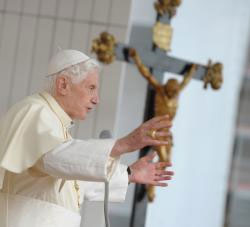
Dear Brothers and Sisters,
In the last catechesis I began speaking about one of the privileged sources of Christian prayer: the sacred liturgy, which – as the Catechism of the Catholic Church affirms – is “participation in Christ’s own prayer addressed to the Father in the Holy Spirit†(Catechism of the Catholic Church, 1073). In the liturgy, all Christian prayer finds its source and goal.”(n. 1073). Today I would like us to ask ourselves: in my life, do I reserve enough space for prayer and, above all, what place does liturgical prayer have in my relationship with God, especially the Mass, as participation in the common prayer of the Body of Christ which is the Church ?In answering this question we must first remember that prayer is the living relationship of the children of God with their Father who is good beyond measure, with his Son Jesus Christ, and the Holy Spirit (cf. ibid., 2565). Therefore, the life of prayer lies in habitually being in the presence of God and being conscious of it, in living our relationship with God just as we live the usual relationships of our lives, those with close family members, and with real friends; indeed our relationship with the Lord gives light to all of our other relationships. This communion of life with God, One and Triune, is possible because, through Baptism we have been inserted into Christ, we have begun to be one with Him (cf. Rom 6:5).
In fact, only in Christ we can talk to God the Father as children, otherwise it is not possible, but in communion with the Son, we too can say, as he said “Abba”, because only in communion with Christ, can we know God as our true Father (cf. Mt 11:27). For this Christian prayer lies in constantly looking, in an ever new way, at Christ, talking with Him, being in silence with Him, listening to Him, acting and suffering with Him. The Christian rediscovers his true identity in Christ, “the firstborn of every creature », in whom all things were created (cf. Col 1:15 ff). By identifying with Him, being one with Him, I discover my personal identity, that of the true child who sees God as a Father full of love.
But do not forget: we discover Christ, we know him as a living Person, in the Church. It is “his Body.” This embodiment can be understood from the biblical words on man and woman: the two shall become one flesh (cf. Gen 2:24, Ephesians 5.30 ff. 1 Cor 6.16 s). The unbreakable bond between Christ and the Church, through the unifying power of love, does not negate the ‘you’ or ‘I’, but raises them to their most profound unity. Finding one’s true identity in Christ means achieving communion with him, that does not cancel me out, but raises me to the highest dignity, that of a child of God in Christ, “the love-story between God and man consists in the very fact that this communion of will increases in a communion of thought and sentiment, and thus our will and God’s will increasingly coincide “(Encyclical Deus Caritas Est, 17). To pray means to rising towards the heights of God through a necessary gradual transformation of our being.
Thus, participating in the liturgy, we make ours the language of the Mother Church, we learn to speak it and for it. Of course, as I have already said, this takes place in a gradual manner, little by little. I have to progressively immerge myself in the words of the Church, with my prayer, my life, my suffering, my joy, my thoughts. It is a journey that transforms us.
This entry was posted on Thursday, October 4th, 2012 at 6:11 am
You can follow any responses to this entry through the RSS 2.0 feed.
What a joy to have the opportunity to talk once again with Fr. Michael Gaitley at the 2012 CMN Trade Show in Dallas, TX. Â We 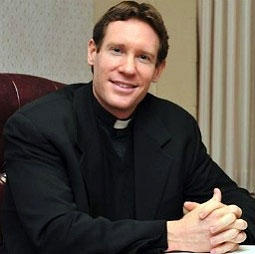 discuss the Year of Faith, “Consoling the Heart of Jesus” and his new book coming soon…”The One Thing is Three”. Â We talk about how the New Evangelization and the role model that Bl. John Paul II was to all of us. Â We all discuss “All Hearts a Fire” the new parish based program which is absolutely FANTASTIC! Â Be sure to check it out and pass it on!
discuss the Year of Faith, “Consoling the Heart of Jesus” and his new book coming soon…”The One Thing is Three”. Â We talk about how the New Evangelization and the role model that Bl. John Paul II was to all of us. Â We all discuss “All Hearts a Fire” the new parish based program which is absolutely FANTASTIC! Â Be sure to check it out and pass it on!
[powerpress]
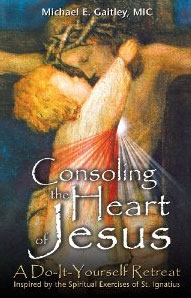 You can find the book here
You can find the book here
Michael Gaitley, MIC’s book is a form of a weekend retreat accessible to those at the beginning stages of a simple way to holiness. While reading this book, I wished I could have had it in conversing with people of little or practically no faith who yet had a longing for the faith that lies at the core of human existence. These hearts are restless until they rest in Thee, Lord and this book guides them on a journey to resting in God. –Fr. Mitch Pacwa
Tags: catholic, catholic podcast, catholic prayer, cathollc spirituality
This entry was posted on Monday, September 10th, 2012 at 9:00 am
You can follow any responses to this entry through the RSS 2.0 feed.
[powerpress] Msgr. Esseff reflects on the dangers of doing “good work” without having the depth of the contemplative prayer that unites us to Christ in doing the will of the Father. Â He offers insight primarily from the teachings found in the letter from St. James Chap 1:
Humbly welcome the word that has been planted in you
and is able to save your souls.
Be doers of the word and not hearers only, deluding yourselves.
Religion that is pure and undefiled before God and the Father is this:
to care for orphans and widows in their affliction
and to keep oneself unstained by the world. Â – NAB
As well as the Gospel of Mark Chap 7:
He responded,
“Well did Isaiah prophesy about you hypocrites, as it is written:
This people honors me with their lips,
but their hearts are far from me;
in vain do they worship me,
teaching as doctrines human precepts.
You disregard God’s commandment but cling to human tradition.”
He summoned the crowd again and said to them,
“Hear me, all of you, and understand.
Nothing that enters one from outside can defile that person;
but the things that come out from within are what defile.
“From within people, from their hearts,
come evil thoughts, unchastity, theft, murder,
adultery, greed, malice, deceit,
licentiousness, envy, blasphemy, arrogance, folly.
All these evils come from within and they defile.” – NAB
Msgr. John A. Esseff is a Roman Catholic priest in the Diocese of Scranton. He was ordained on May 30th 1953, by the late Bishop William J. Hafey, D.D. at St. Peter’s Cathedral in Scranton, PA. Msgr. Esseff served a retreat director and confessor to Blessed Mother Teresa.   He continues to offer direction and retreats for the sisters of the missionaries of charity around the world. Msgr. Esseff encountered St.  Padre Pio,  who would become a spiritual father to him. He has lived in areas around the world,  serving  in the Pontifical missions, a Catholic organization established by Bl. Pope John Paul II to bring the Good News to the world especially to the poor. Msgr. Esseff assisted the founders of the Institute for Priestly Formation and continues to serve as a spiritual director for the Institute. He continues to  serve as a retreat leader and director to bishops, priests and sisters and seminarians and other religious leaders around the world.  Â
To obtain a copy of Msgr. Esseff’s book byvisiting here
Be sure to visit Msgr. Esseff’s website “Building a Kingdom of  Love”
Tags: catholic, catholic podcast, catholic prayer
This entry was posted on Sunday, September 2nd, 2012 at 9:16 am
You can follow any responses to this entry through the RSS 2.0 feed.
“Holiness for Everyone: The Practical Spirituality of St. Josemaria Escriva” is fantastic book which offers a path to living out holiness in our everyday lives.  Eric Sammons breaks open St. Josemaria’s teachings and presents useful steps at the end of each chapter to  foster incorporation of those daily disciplines into our spiritual practice.  Wonderful food for the journey.
to living out holiness in our everyday lives.  Eric Sammons breaks open St. Josemaria’s teachings and presents useful steps at the end of each chapter to  foster incorporation of those daily disciplines into our spiritual practice.  Wonderful food for the journey.
[powerpress]
You can find the book here
From the description:
Strive for your own personal holiness as you implement your daily plan to:
–Be a Contemplative in the Midst of a Busy World
–Live a Life of Prayer
–Recognize the Presence of God
–Make a Plan of Life
–Make Your Work a Way to Heaven
Holiness for Everyone will inspire you as it sets your feet on the path to sainthood.
“Eric Sammons shows that St. Josemaria has recovered the most powerful truth of classic Christianity and restated it in a way that is compelling for men and women of our time.”
—From the Foreword by Scott Hahn
Tags: Eric Sammons, Practical Spirituality, St. Josemaria Escriva
This entry was posted on Sunday, August 26th, 2012 at 1:01 pm
You can follow any responses to this entry through the RSS 2.0 feed.
[powerpress] I had the opportunity to speak with Msgr. Esseff, who  is conducting a spiritual retreat for the Sisters of the 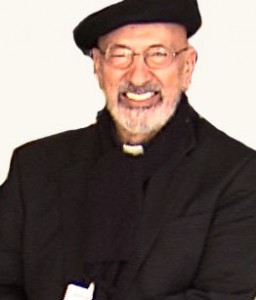 Missionaries of Charity in Sydney, Australia.  He shares with us the teachings from the first day, which is on the principal and foundation of prayer as taught by St. Ignatius of Loyola.
Missionaries of Charity in Sydney, Australia.  He shares with us the teachings from the first day, which is on the principal and foundation of prayer as taught by St. Ignatius of Loyola.
Msgr. Esseff begins by reflecting on the Awe of God and the difference between “being” and “becoming”. Â He shares a special memory of an experience that helped him to understand this which occurred when he was a young boy on his grandfather’s farm. Â Many years later, he would learn this was a basic teaching of St. Thomas Aquinas on the nature of God and creation. Â God is being and creation (including man) is becoming.
 With that foundation, Msgr. Esseff proceeds to teach us that all of our are becoming therefore because mankind has a soul and has the capacity for reflection, we have the power to glorify God. Â That is the first call we have, to glorify God. Â To often we focus on our selves and what serves our needs. Â St. Ignatius would say, that instead when faced with a decision or direction, each human being is called to discern, to ask whether if this is what God wants or is this is what I want. Â The key is to take ask the Father “What do you want us to do?” Â This is discernment at its basic level.
With that foundation, Msgr. Esseff proceeds to teach us that all of our are becoming therefore because mankind has a soul and has the capacity for reflection, we have the power to glorify God. Â That is the first call we have, to glorify God. Â To often we focus on our selves and what serves our needs. Â St. Ignatius would say, that instead when faced with a decision or direction, each human being is called to discern, to ask whether if this is what God wants or is this is what I want. Â The key is to take ask the Father “What do you want us to do?” Â This is discernment at its basic level.
To obtain a copy of Msgr. Esseff’s book byvisiting here
Be sure to visit Msgr. Esseff’s website “Building a Kingdom of  Love”
Tags: catholic, catholic podcast, catholic prayer, cathollc spirituality, Esseff, John Esseff, the Sisters of the Missionaries of Charity
This entry was posted on Sunday, July 8th, 2012 at 5:50 pm
You can follow any responses to this entry through the RSS 2.0 feed.
Mark Shea once again gives us an outstanding resource to grow in our Catholic faith! Â 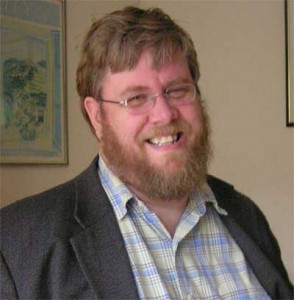 This time its with “The Heart of Catholic Prayer: Â Rediscovering the Our Father and the Hail Mary”. Â Mark takes great care and time with varied sections of each prayer and helps us to deeply reflect on the mystery contained within them. Â Both meditative and catechetical, what we will find is a treasure house of grace, which if pondered deeply, will unite us closer to the heart of the Father, the Son and the Holy Spirit. Â Outstanding!
This time its with “The Heart of Catholic Prayer: Â Rediscovering the Our Father and the Hail Mary”. Â Mark takes great care and time with varied sections of each prayer and helps us to deeply reflect on the mystery contained within them. Â Both meditative and catechetical, what we will find is a treasure house of grace, which if pondered deeply, will unite us closer to the heart of the Father, the Son and the Holy Spirit. Â Outstanding!
[powerpress]
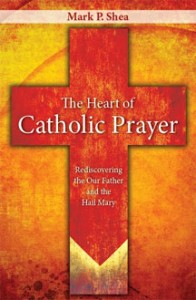 You can find Mark’s book here
You can find Mark’s book here
To learn and understand the Our Father and Hail Mary is to learn the deepest contours of the Church’s interior life, for both are prayers that come from the Holy Spirit, who is the soul of the Church.Â
Experience the ordinary truths of the Faith that the Church has always taught, but in ways which will generate a spark of recognition in the contemporary mind. Upon completion of this book, you will never recite either of these prayers in the same way again.
Tags: catholic, catholic podcast, catholic prayer, cathollc spirituality
This entry was posted on Monday, May 21st, 2012 at 4:30 am
You can follow any responses to this entry through the RSS 2.0 feed.
Stephen J. Binz is a Catholic biblical scholar, psychotherapist, popular speaker, and award-winning author of more than thirty books on 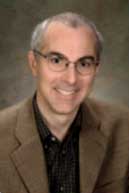 the Bible and biblical spirituality. Â “Learning to Pray with Scripture” is another volume in the excellent “Lectio Divina” series brought to us by Our Sunday Visitor. Â In it Stephen uses the actual prayers of Sacred Scripture to help us enter a deeper relationship with God through our own prayer. Â This series is outstanding, and absolute MUST for those seeking a great guide to this ancient prayer form!
the Bible and biblical spirituality. Â “Learning to Pray with Scripture” is another volume in the excellent “Lectio Divina” series brought to us by Our Sunday Visitor. Â In it Stephen uses the actual prayers of Sacred Scripture to help us enter a deeper relationship with God through our own prayer. Â This series is outstanding, and absolute MUST for those seeking a great guide to this ancient prayer form!
You can find this book here
This study shows the way that various characters in the Bible prayed and what they can teach you about prayer. It also delves into various types of prayer and what you can learn from them.
Every chapter leads you forward through a sequence of:
- Listening – Reading Scripture with expectancy, trusting that God will speak His Word to us through it
- Understanding – Seeking to comprehend the meaning of the text, encountering God there and being changed by that encounter
- Reflecting – Linking the truth of the Scriptures to the experience of faith in the world in which we live
- Praying – A dialogue with God: we listen to God, then we respond in prayer
- Acting – After prayerfully listening to God through a passage of Scripture, we should be inspired to make a difference in the way we live
Tags: catholic, catholic podcast, catholic prayer, cathollc spirituality
This entry was posted on Monday, May 7th, 2012 at 12:57 am
You can follow any responses to this entry through the RSS 2.0 feed.
 This is excellent overview of Prayer as taught by the Catechism of the Catholic Church…check it out…then pray!
This is excellent overview of Prayer as taught by the Catechism of the Catholic Church…check it out…then pray!
Tags: catholic, catholic podcast, catholic prayer, cathollc spirituality
This entry was posted on Tuesday, March 27th, 2012 at 12:09 am
You can follow any responses to this entry through the RSS 2.0 feed.
[powerpress]Msgr. Esseff offers a teaching on the 3 levels of the heart. Â He begins by looking at the Sacred Heart of Jesus, then moves to 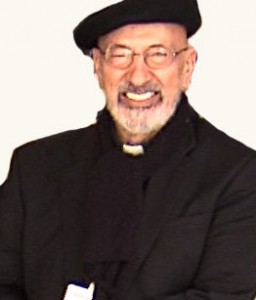 the examination of the layers of our hearts. In understanding of this is vitally important to appreciate how we make decisions and pray…if we are in our own will or God’s will.
the examination of the layers of our hearts. In understanding of this is vitally important to appreciate how we make decisions and pray…if we are in our own will or God’s will.
Be sure to visit Msgr. Esseff’s website:Â Â Building a Kingdom of Love
Tags: catholic, catholic podcast, catholic prayer, cathollc spirituality, Esseff, John Esseff, sacred heart of jesus
This entry was posted on Tuesday, March 20th, 2012 at 7:21 pm
You can follow any responses to this entry through the RSS 2.0 feed.
It’s always a delight to talk with Bert Ghezzi, especially about Jesus. Â In his new book, “Discover Christ: Developing a Personal 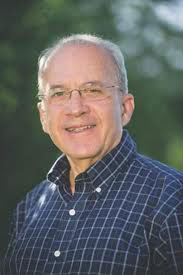 Relationship with Christ” co authored with David Nodar, Bert tackles many of the big questions:
Relationship with Christ” co authored with David Nodar, Bert tackles many of the big questions:
What is the meaning of life?
—Why do I need a savior?
—Why is the Resurrection important?
—What does it mean to believe and belong?
—Why does Jesus matter?
[powerpress]
This is wonderful book to read if your are seeking a closer relationship with the Lord or to pass on to someone you know who is on that quest.
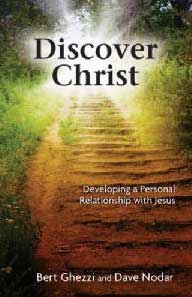 You can find the book here
You can find the book here
Tags: bert ghezzi, catholic, catholic podcast, catholic prayer, cathollc spirituality, David Nodar, Discover Christ
This entry was posted on Monday, March 19th, 2012 at 4:42 pm
You can follow any responses to this entry through the RSS 2.0 feed.


